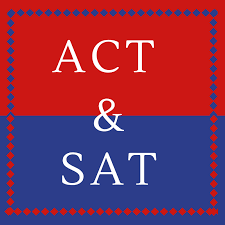Colleges never favored using standardized test scores as the primary criterion in admissions. They did considered them useful as the only means of comparing applicants on an apples-to-apples basis. In the early aughts, however, a movement emerged to make test scores optional due to the perception that they were unfair to lower income applicants.
Just as the test-optional movement was gathering steam, COVID-19 struck. Pandemic regulations made test-optional admissions a necessity because SAT and ACT testing centers were closed for most of 2020 and 2021. Nearly 2,000 colleges dropped the requirement for test scores. After the pandemic, most of these colleges announced that they would retain their test-optional policies at least through 2024-25 to study the impact on admissions over time. A large majority of four-year colleges are now test-optional.
Applicants not submitting scores are assured by colleges that their chance of admission is not diminished. These assurances are false, yet a generally positive impression of test-optional policies still prevails. In practice, test-optional policies still afford colleges the opportunity to use the test scores that a majority of applicants submit as a factor and to infer meaning from the non-submission of test scores.
A test-blind movement has arisen in which some colleges prohibit even the receipt of test scores in order to prevent their use. There are 84 test-blind colleges, including all of the branches of the University of California and the California State University systems.
Reconsidering Test-Optional Policies
Recently, the test-optional policies of some colleges have converted to a requirement for the submission of test scores once again. A number of influential college administrators who have studied their data since the advent of test-optional admissions have concluded that dropping the test requirement was a mistake.
Research has demonstrated that SAT/ACT results contain useful information that helps to predict an applicant’s college grades, chances of graduation, and post-college success. Test scores are now seen by some administrators as much more reliable than high school GPA’s, especially in the context of high school grade inflation.
According to David Leonhardt of the New York Times (January 7, 2024): “Without test scores, admissions officers sometimes have a hard time distinguishing between applicants who are likely to do well at college and those who are likely to struggle. Researchers who have studied the issue say that test scores can be particularly helpful in identifying lower-income students and underrepresented minorities who will thrive. These students do not score as high on average as students from affluent communities or white and Asian students. But a solid score for a student from a less privileged background is often a sign of enormous potential.”
A study released in mid-2023 by Opportunity Insights, a Harvard-affiliated consulting group, showed little relationship between high school GPA and success in college. Using admissions records and first-year grades between 2017 and 2022, the group determined that, with all other variables equal, students who scored highest on the SAT and ACT earned college GPA’s 0.43 points higher than those with more modest scores. The researchers also found a strong relationship between test scores and post-college success. The results of other studies support the finding that academic performance aligns more closely with test scores than with grades.
Colleges Reinstating the Test Requirement
Two prestigious institutions, Dartmouth and Yale recently announced that they will adopt a requirement for test scores after 2024-25. They join a number of schools that adopted mandatory testing last year, including Georgetown, Florida, Georgia Tech, Purdue, Florida State, South Florida, Tennessee, Thomas Aquinas College, all four U.S. Military Academies, and MIT. MIT enrolled the most diverse class in its history after reinstating its testing requirement, according to its dean of admissions. A 2023 survey by Kaplan found that, at 14% of the top 300 schools in the country, admissions committees with test-optional policies were considering reinstating the requirement for test scores.
Dartmouth is test-mandatory again after an study found that test scores predict college performance better than high school GPA’s. According to the research:
- The average college GPA for students who got a 4.0 in high school was only 0.1 points higher than for students who got a 3.2 in high school.
- Higher SAT/ACT scores have a much stronger correlation with post-college success than do high school GPA’s.
- Surprisingly, making the SAT/ACT optional disadvantaged low-income applicants. They often opted to withhold scores that they thought were too low but which actually could have gotten them admitted to Dartmouth, which considers scores in the context of an applicant’s background.
Without test scores, admissions officers report having difficulty distinguishing applicants who are likely to do well at their college from those who are likely to struggle. Colleges that have studied the data find that test scores are helpful in identifying lower-income students and underrepresented minorities who will thrive in college. These students do not score as high on average as white or Asian applicants, but a solid score of an applicant from an underprivileged background is considered a sign of great potential.
Emotions Are High
The Supreme Court’s rejection of affirmative action last year has aroused emotions around college admissions, including the unfairness of standardized tests. The controversy over testing is wrought up in meta-concerns about inequality in America and what the mission of the nation’s colleges should be. Consequently, a widespread renewal of the use of testing will be slow at best no matter how compelling admissions data may be.
According to the New York Times article cited above,:
“The data suggests that testing critics have drawn the wrong battle lines. If test scores are used as one factor among others — and if colleges give applicants credit for having overcome adversity — the SAT and ACT can help create diverse classes of highly talented students. Restoring the tests might also help address a different frustration that many Americans have with the admissions process: that it has become too opaque and unconnected to merit.”
Examining the results of test-optional policies over the last few years has revealed that, despite the good intentions behind the test-optional movement, it may be producing the opposite of its intended purpose; increasing unfairness rather than reducing it by adopting subjective, arbitrary assumptions about applicants.
Coping with the Test-Optional Conundrum
It may take years for the revisionist view of testing to be adopted by a majority of colleges. In the meantime, colleges will remain predominantly test-optional. But test-optional doesn’t mean that the SAT/ACT exams are really optional for those students aspiring to attend a college with selective admissions.
We advise that students prepare diligently for either the SAT or ACT. If their scores are below the range of applicants admitted to a college in the past according to publicly available data, the student should consider not submitting them. But, since omitting scores can hurt an applicant, it comes down to two choices; the student can submit their test scores even though this may place them at a disadvantage, or the student can decide not to apply to the college since their odds of admission are low. We recommend submitting the scores since doing so cannot harm the student.


Recent Comments